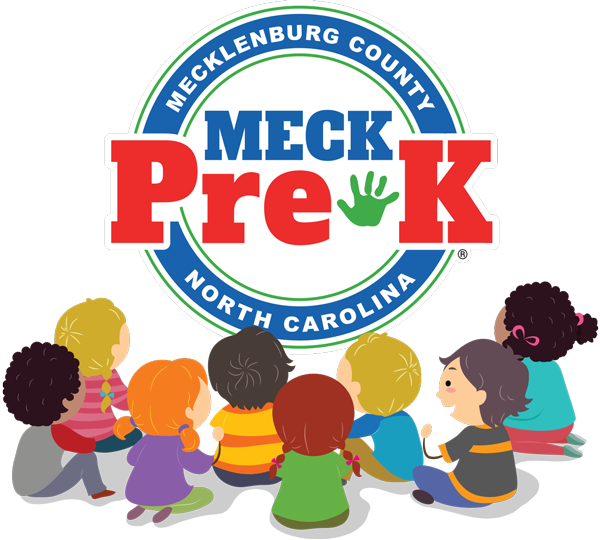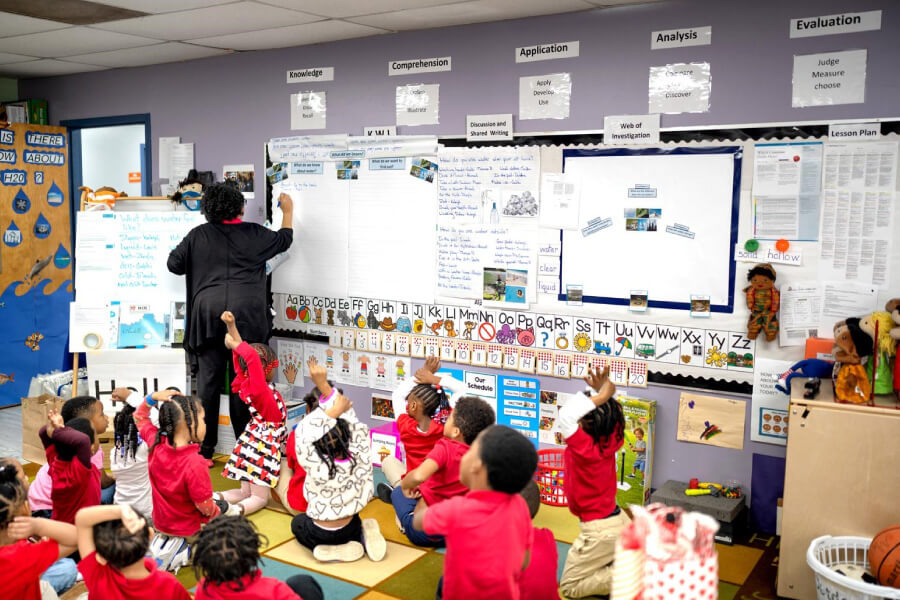Creative Curriculum in the Classroom
Pre-K can play an important role in a child’s development, but you may wonder: what goes on in the classroom? MECK Pre-K uses the Creative Curriculum®, a hands-on, project-based approach to education that incorporates real life experiences into the learning process.
Classroom Activities
Teachers plan opportunities for children to satisfy their innate curiosity by investigating interesting topics in developmentally appropriate ways. This curriculum not only covers essential content but also pushes children to be independent learners by using a project approach. This school year, students are investigating:
- Building a classroom community: Students will learn how to be a part of a classroom community, make friends, rules & routines, and how to care for the classroom and it’s materials
- Trees: In this study, children will expand their knowledge of trees through a variety of hands on experiences that support all areas of their learning and development. They will develop an understanding of the characteristics of different kinds of trees, how trees grow and change, and why trees are important to people and the environment. They will also meet interesting people from the community who work with trees.
- Buildings: In this study, children will expand their knowledge of buildings through a variety of firsthand experiences that support all areas of their learning and development. They will compare different structures and their characteristics, discover how people construct and use buildings, and design and create their own model building and communities. They will also meet interesting people from the community who construct or work with building.
- Clothing: In this study, children will deepen their understanding of clothes through a variety of firsthand experiences that support all areas of their learning and development. Through these investigations, children will discover different types of clothes, how people care for clothes, where people get their clothes, and how to design and create their own clothes. Children also will meet members of their community who work with clothes in different ways.
- Balls: Children will learn how natural forces such as gravity and friction affect how balls move. They also learn how to make balls, marbles, and other rolling objects change speed and direction.
- Water: In this study, children will explore a variety of questions and concepts through experiences that support all areas of development and learning. They will discover the importance of water and its many uses at school and at home, investigate how water changes, and learn about how water helps people and the environment. Through these investigations, children will find sources of water around the school and learn how water is used at each; explore how water is used to clean, create, and play; conduct experiments on how water changes from liquid to gas, liquid to solid, and solid to liquid; learn the importance of water conservation; and meet interesting people who work with water in the community.
- Recycling: In this study, children will deepen their understanding of ways to reduce, reuse, and recycle items they use through a variety of hands on experiences that support all areas of their development and learning. Through these investigations, children will observe, gather data, explore their community, interview an expert, learn new information, and propose solutions to problems.
- Insects: Children will explore different types of insects and investigate the characteristics of insects, how insects work together, how they keep themselves safe, and how they help the environment. They will gather data, meet interesting people who work with insects, explore a variety of materials used to examine insects, and create their own guide to the insects in their community.
- Getting ready for Kindergarten: During the last weeks of school children will prepare for the end of Pre-K and the transition to Kindergarten. Teachers will guide children through the process of reflecting on what they’ve learned, celebrating their achievements, and sharing their experiences with families and friends.
Students also gain knowledge in alphabets, name writing, phonological awareness, and math during interest area time, transitions (mighty minutes), small groups, and large group time.
Does this sound like something your child would enjoy? MECK Pre-K is open to all four-year-old children in Mecklenburg County. Classrooms are located in licensed child development centers and taught by licensed teachers and highly qualified assistant teachers. For more information, and to apply online, visit MECKPreK.org!
Your child must turn four by August 31 of that school year. If your child will not turn four in time, you can sign up to be notified when registration opens for their age group.

